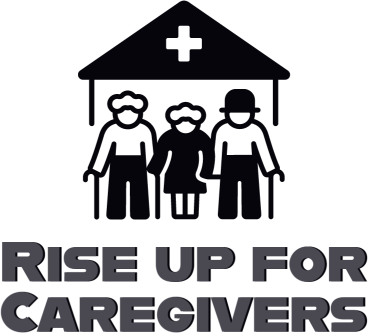When illness or advanced age strikes, the caregiver job is often delegated to a loved one or family member. There could be many reasons for this. The person needing care might not be able to afford assisted living or the services of an on-call nurse. It is also common for the caregiver role to be thrust upon somebody during the stress of a diagnosis or determination that such care is needed. And although the need for assistance alone can be stressful for family and friends, the pressure caregivers feel over time can be unbearable.
Caregiver stress can result in burnout. A caretaker can get so wrapped up in their responsibilities to care for another that they lose their own sense of the self. Then, their health and mental well-being suffers.
The stress can develop in three distinct stages. The first is frustration. Family and friend caregivers more often than not have no professional background in medicine, nursing or care in general. Because of this lack of experience, they may have unreasonable expectations about how the illness is going to progress. Often, when someone gets diagnosed with a life-changing illness, friends and family members want desperately to not only support the person but provide a solution. Caregivers want to make everything better for the person who is suffering. The reality is that many afflictions that require caregiving for an extended period of time don’t get better as time progresses. Eventually, a family or friend caregiver realizes this and can become deeply frustrated.
The next stage is isolation. When the person needing care is homebound, the caregiver ends up being homebound as well. Unlike a job where a nurse or respite provider can punch out and go home, a family or friend caregiver may be living with the person. In such cases, the illness or condition is in a sense adopted by the caregiver, and it becomes their illness and their condition. Normal, everyday life changes drastically for this caregiver, and their social life suffers. The caregiver may no longer spend time with friends or with anyone other than the care recipient.
The last stage is depression. Despair can be a culmination of the previous two stages. Also, in the case of a terminally ill patient or one suffering from Alzheimer’s, the caregiver eventually begins to approach the possibility of the patient dying. This can cause a range of conflicting emotions such as sadness and a guilt-laden relief.
Burnout stages can manifest in several ways. Some examples of caregiver burnout include:
– Extreme fatigue
– Loss of sleep
– Too much sleep
– Anger and irritability
– Disconnection from social life
– Disinterest in pleasurable activities
– Depression
A combination of these factors can lead to substance abuse. When a caregiver is depressed and sees no happy ending in their life, or feel futile in the life of the person needing care, there is a tendency to self-medicate. Alcohol and drug use might provide temporary comfort, but resorting to unhealthy and destructive behaviors only serves to worsen the problems.
Effective relief of caregiver burnout requires an awareness of your role as a caregiver and your needs as a person. Self-care can play a strong role in avoiding burnout, since the basics of self-care ensure that your needs are met and that you are comforted in a healthy manner. Self-care can include a variety of treatments, such as meditation, yoga and massages, but it also can be as simple as bringing some positivity into your life. Experts suggest caregivers include fun activities into their daily routines. Hobbies, low-impact exercise and time with friends can all help in this area.
When caregivers experience burnout, they run the risk of allowing a disease or condition to take two people down with it. By knowing your role and your abilities, and ensuring that your needs and health are not compromised, you can avoid caregiver stress.
